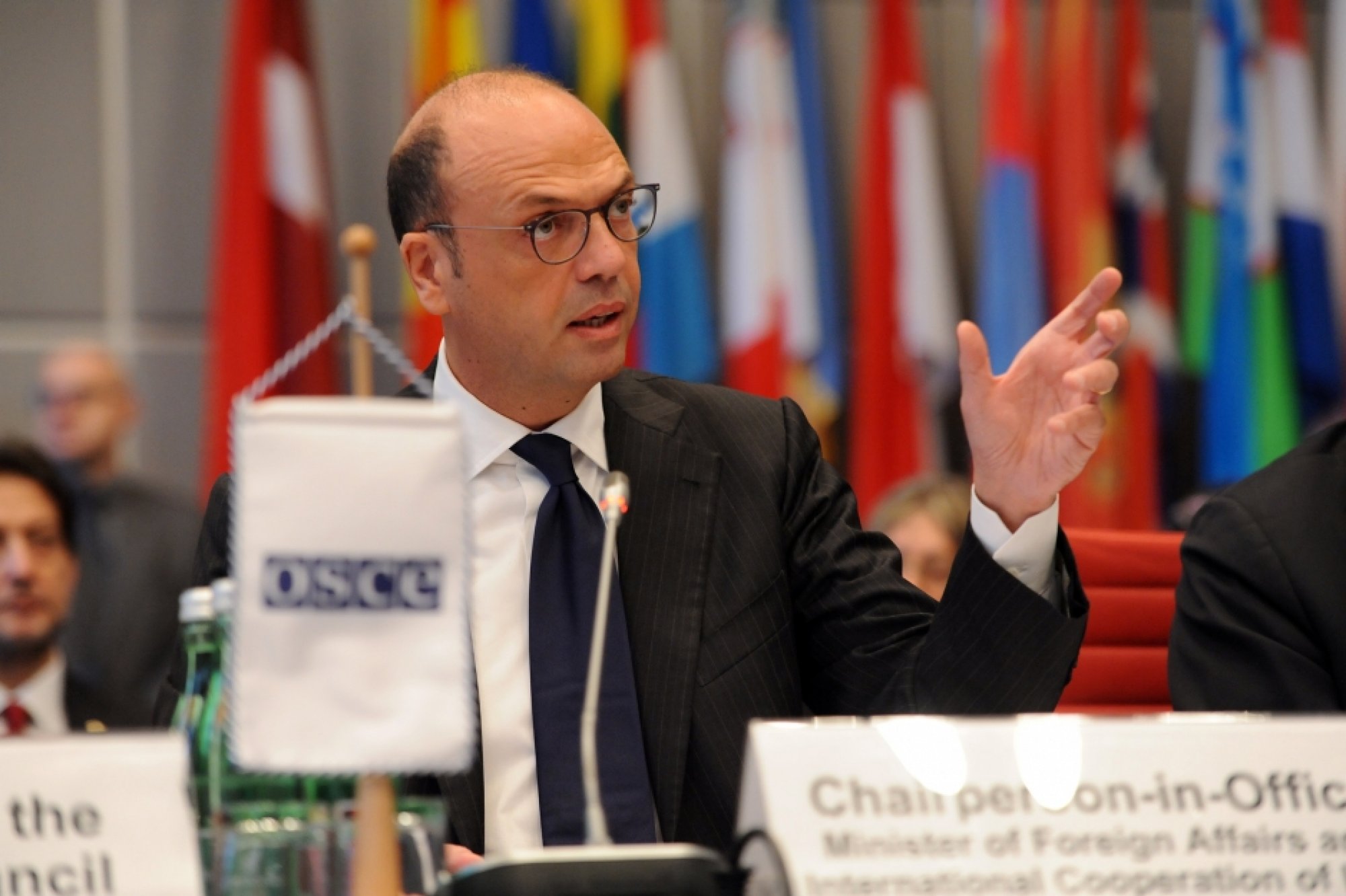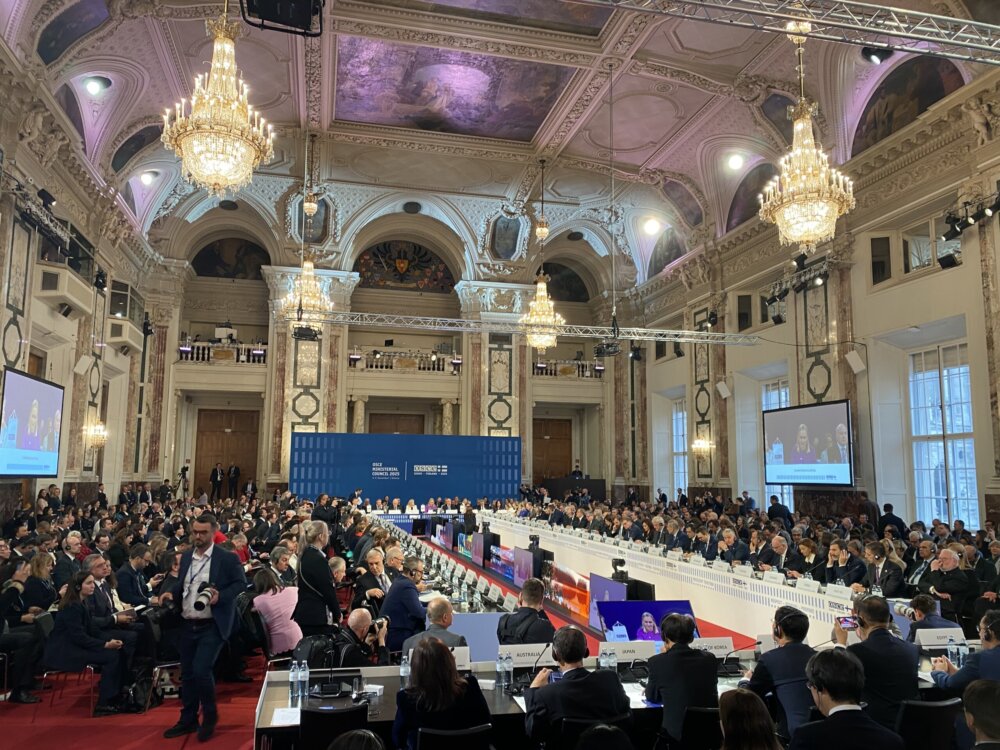OSCE/Micky Kroell

The OSCE and Mediterranean Security
The Italian OSCE Chairmanship of 2018 aims to promote a stronger focus within the OSCE on challenges and opportunities emanating from the Mediterranean region. While the connectivity of European security with the Mediterranean area was already underscored in the 1975 Helsinki Final Act, the Mediterranean dimension has historically always been a “neglected stepchild” of the CSCE/OSCE. Italy is well placed to revitalize the OSCE’s Mediterranean Partnership, notably by using the OSCE’s convening power to exchange best practices on how to deal with shared challenges, such as irregular migration and jihadi radicalization.
The 1975 Helsinki Final Act was innovate and visionary in its emphasis on the “close linkage” between European security and that of the entire Mediterranean area in its Mediterranean chapter. This inter-linkage was re-emphasized in the OSCE Istanbul Charter for European Security (1999), the Maastricht OSCE Strategy to Address Threats to Security and Stability in the 21st Century (2003) and the OSCE Astana Commemorative Declaration (2010).
Indivisibility of Security
The “Arab uprisings” in 2010/11 and the 2015 refugee crisis have served as a reminder of the indivisibility of security within the OSCE area and the Mediterranean. Some of the most pressing security challenges of our day, including irregular migration, human trafficking and other cross-border criminal activities, countering violent extremism and radicalization that lead to terrorism (VERLT), and the return of foreign terrorist fighters are shared by OSCE participating States and the OSCE’s six Mediterranean Partners (Algeria, Egypt, Israel, Jordan, Morocco, Tunisia) alike, enhancing the existence of common ground for cooperation. These transnational challenges have increased the relevance of the OSCE’s comprehensive and cooperative approach to security in the Mediterranean. As such, there are opportunities to give new momentum to the OSCE’s Mediterranean Partnership and to make the best use of the “OSCE tool box”.
Yet, the Mediterranean Partnership dialogue has so far lacked a bold strategic vision or perspectives for Mediterranean Partners. This is, in part, due to a regional situation unconducive to promoting the CSCE/OSCE experience as a source of inspiration and, instead, more amenable to practical cooperation. However, in light of recent historical transformations in North Africa, shared transnational challenges and the interest of some states in the Mediterranean in intensifying cooperation, revitalizing the Mediterranean Partnership may require further defining its purpose.
Extending the Partnership?
Effectively meeting the objectives of the Mediterranean Partnership requires that as many countries as possible in the Mediterranean area are included in cooperative arrangements. However, despite calls from Mediterranean Partners to extend Partnership status to Syria, Libya, Lebanon, and the Palestinian Authority (PNA), as well as formal requests for admission from the PNA and Libya having been made, the Mediterranean Partnership has not been extended since 1998. Yet, lack of consensus within the OSCE does not need to preclude their participation in OSCE activities as a means of engaging with them and perhaps preparing them to become Partners. Libya’s participation in the 2016 Mediterranean Conference was an important development in this regard. Meeting security challenges in both the OSCE area and the Mediterranean could also require reaching out to regional organizations pertinent to security in the Mediterranean. However, the basis for cooperation with such organizations remains ill-defined.
Boosting Cooperation on Migration
Expanding cooperation in prescient areas of mutual interest could be a means of boosting cooperation with Mediterranean Partners. A grave security challenge facing the OSCE area and the Mediterranean that could benefit from greater cooperation is that of irregular migration and refugee flows. While managing such flows in itself has not formed part of the OSCE core agenda, the OSCE has developed expertise in areas related to irregular migration and refugees, including human trafficking, cross-border criminal activities, border management, police co-operation, human rights, and the promotion of tolerance and non-discrimination. Management of migration and refugee flows has also become a topic of dialogue with Mediterranean Partners at Contact Group Meetings and OSCE Mediterranean Conferences in recent years. In addition, further cooperation in this domain was recently given political impetus by the Decision adopted at the December 2016 Ministerial Council in Hamburg that calls for the reinforcement of cooperation in this field with Partners. The specificities of such enhanced cooperation still need to be delineated, though.
Dissatisfaction on Both Sides
Re-invigorating the Mediterranean Partnership also means conceiving of modalities for cooperation that capitalize on the interests of OSCE participating States and Mediterranean Partners. So far, there has been a dissatisfaction with the Mediterranean Partnership on both sides. The result has been a low level of uptake of opportunities for cooperation on the part of Mediterranean Partners and a general frustration with their lack of voice. OSCE participating States for their part have shown limited interest in participating in Contact Group meetings. Providing fora for cooperation that focus on topics of shared interest, notably migration management, and countering violent extremism and radicalization that lead to terrorism could provide a means of heightening interest on both sides.
Increased opportunities for practical cooperation could help increase the relevance of the OSCE to Mediterranean Partners. In addition, efforts to render the Mediterranean Partnership more interactive, such the 2016 initiative to hold a Contact Group meeting in a Partner state, need to be advanced. OSCE participating States need to reinvest politically and diplomatically in the Mediterranean. The 2018 Italian OSCE Chairmanship is an opportunity not to be missed to strengthen cooperative engagement in the Mediterranean and to share experiences on both shores of the Mediterranean. It is also an opportunity for the OSCE’s Mediterranean Partnership to fulfill its potential. This will not only help the Mediterranean region, but it is also in the interest of OSCE participating States.
Further readings
Stephanie Liechtenstein, “OSCE Mediterranean Conference Highlights the Important Role of Libya in Managing Common Security Challenges”, in: Security and Human Rights Monitor, 10 October 2016.
Monika Wohlfeld, OSCE’s Mediterranean Engagement on the Eve of the 40th Anniversary of the Helsinki Final Act (Rome: Istituto Affari Internazionali: 2014).
Loic Simonet, “The OSCE Mediterranean Partnership Four Years after the Start of the Arab Spring”, in: OSCE Yearbook (2014), pp. 315-337.
Dr. Lisa Watanabe and Dr. Christian Nünlist are senior researchers at the Center for Security Studies (CSS) at ETH Zurich. Lisa Watanabe’s research interests include the dynamics of transitions in North Africa and relations between Europe and the Southern Mediterranean. She is the author of, amongst other things, ”Tunisia’s Jihadi Problem and How to Deal with It” (2017, with Fabien Merz), “Islamic State in North Africa. Still There, Struggling to Expand” (2017) and “Borderline Practices: Irregular Migration and EU External Relations” (2016). Christian Nünlist has recently published “Bridgebuilding without Foundations: Reflections on the Austrian OSCE Chairmanship in 2017” (2017), “Reviving Dialogue and Trust in the OSCE in 2018” (2017), and “The Road to the Charter of Paris: Historical Narratives and Lessons for the OSCE Today” (2017, with Juhana Aunesluoma and Benno Zogg).



Comments
* Your email address will not be published